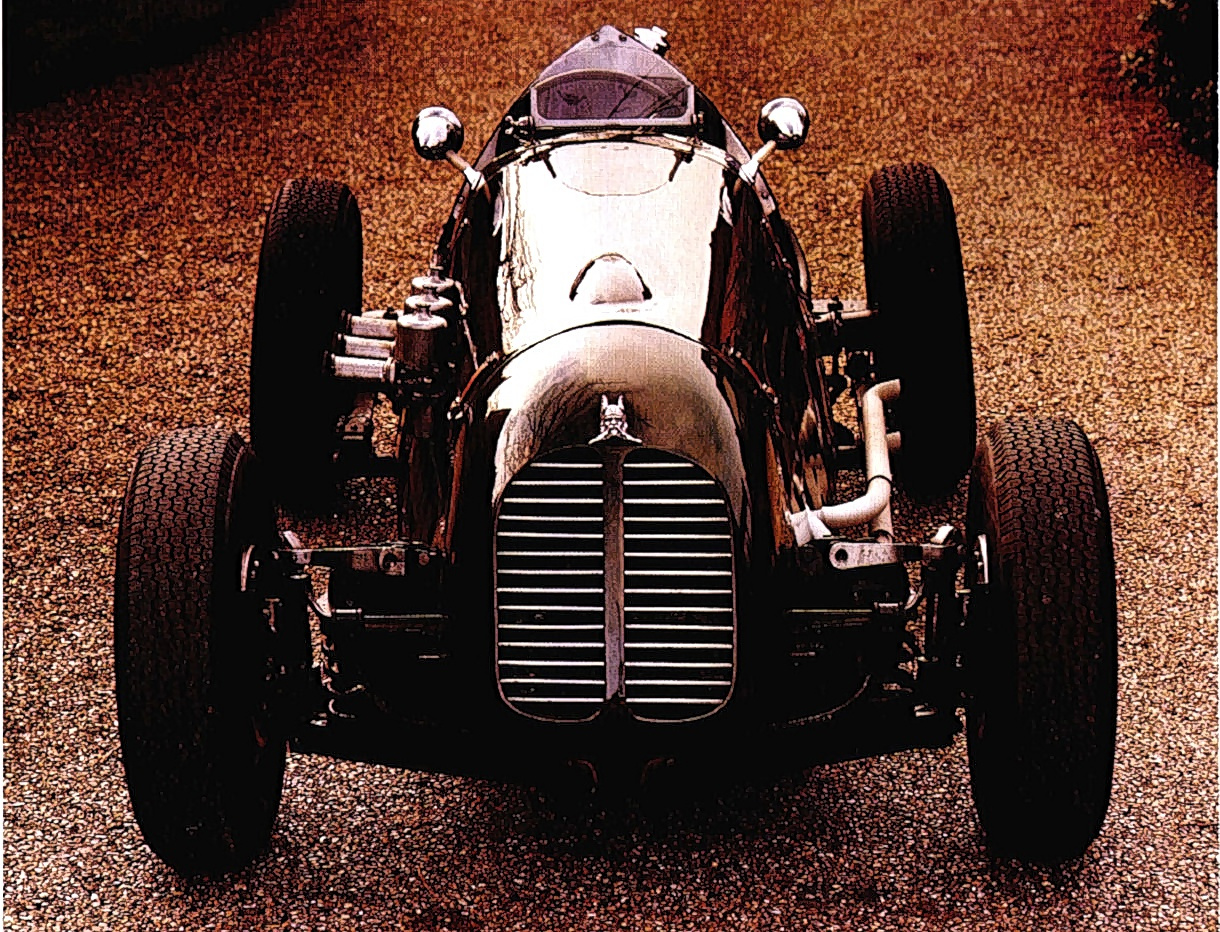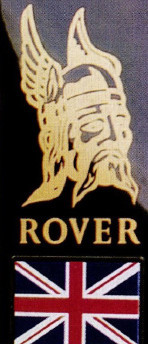
ROVER Racer
Single-seater Test- and Racecar
1948
The illustration shows the ROVER Single-seater Racer from the front. The photo is from © Charles Best/ Motor Sport 2/2001.

The ROVER 'Racer' proudly wears the Viking head near the cockpit.
The ROVER 'Single-Seater Racer' was only a factory car before and during World War II. It was used from 1938 to test the chassis developed by Adrian Lombard, which was used in the ROVER 'P3' after the war. In addition, the IOE (= Inlet over Exhaust) engine was tested in a 1.4-litre four-cylinder design. During the war years, the car with a ROVER '10 hp' body completed about 110,000 test miles.
In 1946, Spen King, George Mackie, and Peter Wilks - three young, enthusiastic engineers - saved the car from being scrapped. After work and on weekends, they rebuilt the car in a shed behind a hotel in Dorridge; the chassis was narrowed and the length of the chassis was reduced by 25% by relocating the rear wheel springs. John Griffith contributed the body. With a 1.5-litre IOE four-cylinder engine, which developed around 80 bhp and had already covered over 110,000 miles, Mackie entered the first race in Goodwood in 1948.
Then a 2-litre six-cylinder test engine was installed, which performed 112 bhp with 3 SU carburettors and methanol. In addition, an ENV preselection gearbox was used, the differential was dispensed with. In 1949 the racer reached the 2nd place in the Goodwood - Easter race. Now ROVER was also prepared to grant the trio access to the work resources virtually underhand - after all, numerous materials were still subject to state control. In 1950 the heavy rear axle of the ROVER 10 was replaced by a deDion design developed by Spen King - forerunner of the later P6 axle - and a short-stroke version of the ROVER P4-90 engine was tested.
But Wilks and Mackie left the factory and wanted to develop the "Marauder". King also retired from the scene as his higher position at ROVER claimed his entire time. After the failure of the "Marauder" project Wilks and Mackie returned to ROVER - later Mackie was head of Land Rover Special Projects and Wilks became Technical Director at ROVER.
In 1953, Gerry Dunham, a Rover dealer from Lutton, took over the Racer. He drove it only irregularly, now with the Rover 75's 2.4-litre six-cylinder engine, and fortunately he also took part in several international races, which later enabled the car to be admitted to historic events of the VSCC (= Vintage Sports Car Club).
Frank Lockhart worked at Dunham during this time and came into contact with the ROVER Racer. Lockhart had already contested several races in cars of other brands since 1953. He had the short-stroke lift developed from the P4 90 engine installed again and drove successfully for many years. After the race at Brands Hatch in 1964 it became "his" car - officially he never bought it. In 1965, the crankshaft broke and had to be replaced by the standard cubic shaft, bringing the engine back to 2.6 litres. In 1967 Lockhart drove the fastest time of day in Prescott against the biggest competition. At Silverstone, a piston collapsed. As it was still a test engine, no replacement was found. It was allowed to install the 3-litre engine - now the racer almost flew.
Frank Lockhart and his ROVER Racer were known as colourful dogs over the years when a serious accident in 1977 knocked out both the car and the driver in Ingliston. In 1978 ROVER repaired the chassis, but the VSCC now required the installation of the 2.6-litre engine. After a few races Lockhart protested and was allowed to install the 3-litre engine again. With 3 SU carburettors he achieved about 150 bhp and drove further races home victorious against much more powerful competition.
In 1980 Frank Lockhart exhibited the car on the occasion of the 75th birthday of the ROVER company at the Nürburgring - his only "foreign assignment". Frank used the car for further races until he sold it in 2002 to Welsh Rover enthusiast Ian Glass, who is now continuing the racing tradition.
By the way: the ROVER Racer never had a starter, it had to be pushed. Few meters were reportedly enough.

The Vintage Sports Car Club (VSCC) organises races and rallies with historic vehicles of various classes.
Frank Lockhart
The driver Frank Lockhart discussed here is not identical with the American driver of the same name. When "Googling", unfortunately, one only ever comes across the - famous - American.
© 2021-2026 by ROVER - Passion / Michael-Peter Börsig

 Deutsch
Deutsch